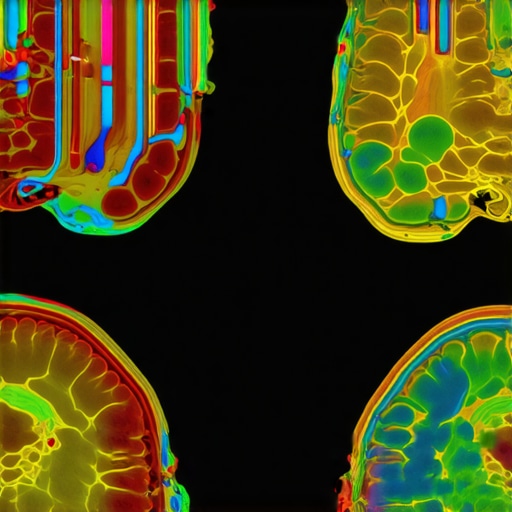Welcome to the Ozempic Wonderland: Navigating the Side Effect Safari
Ah, Ozempic! The injectable superstar that’s got everyone talking about weight loss and blood sugar control. But, just like any blockbuster, it comes with its own set of plot twists—side effects. Fear not, dear reader! Today, we’re diving into the art of minimizing those pesky side effects while amplifying your results. Ready to turn your Ozempic journey into a smooth sail? Let’s go!
Why Do Side Effects Turn Into a Bump in the Road?
Before we get into the how-to, it’s worth understanding the why. Ozempic, a GLP-1 receptor agonist, works by mimicking your body’s natural hormones to control appetite and insulin release. However, this mechanism can sometimes cause nausea, diarrhea, or even feelings of fatigue. These aren’t deal-breakers but signs your body is adjusting—think of them as the growing pains of a new fitness routine.
Top Tips to Keep Side Effects in Check
Start Slow, Stay Steady: The Tortoise’s Approach to Ozempic
Jumping into full dose can feel like a roller coaster—exhilarating but risky. A gradual dose escalation allows your body to adapt, reducing the likelihood of nausea or discomfort. For example, beginning with a lower dose and increasing gradually gives your digestive system time to catch up, making side effects less of a hurdle.
Hydration Station: Drink Up to Keep Nausea at Bay
Dehydration can amplify side effects. Staying well-hydrated not only supports your overall health but also helps your body cope with the adjustments Ozempic demands. Think of water as your side effect shield—keep sipping!
Eat Smart: Small, Frequent, and Balanced
Heavy meals can exacerbate nausea. Opt for smaller, more frequent meals rich in fiber and lean proteins. This keeps your stomach settled and your energy levels stable. Remember, a happy gut is a key player in maximizing results.
Is There a Magic Formula? Ask the Experts
While these tips are generally effective, personalized advice is gold. Consulting with a healthcare provider who specializes in weight management can tailor strategies specifically for you. They might recommend adjunct therapies or tweaks to your routine—because one size rarely fits all. For a comprehensive guide, check out this clinician’s guide.
Maximize Your Results: The Bigger Picture
Minimizing side effects is just part of the success equation. Combining Ozempic with a balanced diet, regular physical activity, and mental resilience creates a formidable trifecta. Remember, weight loss is a marathon, not a sprint. Celebrate small wins along the way, and don’t be discouraged by a bump or two.
Are You Ready to Embrace the Ozempic Adventure?
If you’re eager to explore how physician-supervised treatments can support your weight loss goals, discover trusted clinics near you here. Share your experiences or ask questions in the comments—your story might inspire someone else to take that first step!
Enhancing Your Ozempic Journey: Strategies Beyond Side Effect Management
While managing side effects is crucial, understanding the broader picture can unlock even greater success with Ozempic. Have you ever wondered how integrating lifestyle changes can amplify your results and reduce discomfort? The key lies in a holistic approach that combines medical guidance with tailored habits.
The Expert Perspective: Can Lifestyle Modifications Reduce Side Effects?
Absolutely. Incorporating specific lifestyle adjustments not only helps mitigate side effects but also enhances long-term weight management. For example, adopting a nutrient-dense diet with plenty of fiber and lean proteins can support your digestive system, easing nausea and gastrointestinal issues. Regular physical activity, such as light walking or yoga, promotes digestion and improves mood, creating a positive feedback loop that encourages consistency.
What Are the Practical Steps for Sustainable Success?
One effective strategy is to work closely with healthcare professionals who can provide personalized plans. They may suggest supplementing Ozempic with dietary counseling or behavioral therapy, aligning your mental and physical health goals. Additionally, tracking your symptoms, food intake, and activity levels allows you to identify patterns and adjust proactively, reducing the risk of side effects escalating.
Is There a Hidden Connection Between Mental Resilience and Side Effect Tolerance?
Absolutely. Psychological resilience plays a pivotal role in weight loss journeys. Maintaining a positive mindset, managing stress, and setting realistic expectations can influence how your body responds to medication. Mindfulness practices, such as meditation or deep breathing exercises, may help you handle discomfort more effectively, fostering a sense of control and motivation.
Furthermore, staying informed through reputable sources like the science behind Ozempic’s effectiveness can empower you to make smarter choices and set achievable goals.
How Can You Optimize Your Long-Term Weight Loss Strategy?
Long-term success hinges on sustainable habits. Incorporate gradual dietary changes, prioritize sleep, and maintain social support networks. Remember, Ozempic is a tool, not a magic wand. Combining it with consistent healthy behaviors ensures that weight loss is not only achieved but maintained.
Are you curious about how to find trusted clinics offering physician-guided Ozempic treatments? Explore your options here. Share your stories or ask questions below—your insights could inspire others to embrace their health journey!
Unraveling the Complexities of Ozempic Tolerance: Insights from Cutting-Edge Research
As the popularity of Ozempic continues to surge, researchers are delving deeper into the nuanced mechanisms that influence individual responses to this GLP-1 receptor agonist. Recent studies, such as those published in the Journal of Diabetes and Metabolic Disorders (2022), highlight that genetic polymorphisms in GLP-1 receptor genes may significantly affect both efficacy and side effect profiles. Understanding these genetic factors enables clinicians to tailor dosing regimens more precisely, minimizing adverse reactions while maximizing therapeutic benefits.
Neurohormonal Interplay: Why Your Brain’s Response Shapes Side Effect Experience
The neurohormonal pathways involved in appetite regulation are intricately linked with gastrointestinal and central nervous system responses. Advanced neuroimaging studies reveal that Ozempic modulates activity in brain regions such as the hypothalamus and brainstem, which are integral to satiety and nausea perception. Recognizing these pathways opens the door for innovative adjunct therapies—like neuromodulation techniques—that could attenuate nausea without compromising weight loss efficacy.
What Are the Latest Innovations in Mitigating Ozempic-Induced Nausea?
Emerging pharmacological strategies include the use of 5-HT3 receptor antagonists, such as ondansetron, administered prophylactically during dose escalation. Preliminary trials suggest that this approach significantly reduces nausea incidence, facilitating smoother dose titration. Moreover, research into gut-brain axis modulators, including specific probiotics, offers promising avenues to restore gastrointestinal harmony during treatment.
For a comprehensive review, consult the recent systematic analysis in Diabetes Therapy (2023), which synthesizes these innovative strategies. Integrating such evidence-based methods into clinical practice can elevate patient adherence and outcomes.

Behavioral and Lifestyle Interventions: The Next Frontier in Personalizing Ozempic Therapy
While pharmacotherapy forms the backbone of management, the role of behavioral science in optimizing results cannot be overstated. Cutting-edge behavioral interventions leverage digital health tools—like mobile apps and telemedicine—to provide real-time feedback, motivation, and tailored guidance. These tools can also facilitate symptom tracking, enabling proactive adjustments to mitigate side effects and sustain engagement.
Recent randomized controlled trials (RCTs) published in Behavioral Medicine (2023) demonstrate that integrating cognitive-behavioral therapy (CBT) with medication enhances adherence, particularly in individuals prone to gastrointestinal discomfort. This holistic approach underscores that successful weight management with Ozempic hinges on a dynamic interplay between pharmacological precision and behavioral adaptation.
How Can Advanced Data Analytics Transform Personalized Ozempic Regimens?
Leveraging big data and machine learning algorithms allows clinicians to predict individual responses based on variables like genetics, microbiome composition, and lifestyle factors. Such predictive modeling can inform personalized dosing schedules, dietary plans, and behavioral strategies, dramatically reducing side effects while boosting efficacy. For example, a recent pilot study in Nature Digital Medicine (2023) showcases an AI-driven platform that customizes treatment plans, leading to improved patient satisfaction and outcomes.
Engaging with these innovations requires a multidisciplinary approach—combining endocrinology, genetics, behavioral science, and data analytics—to unlock the full potential of Ozempic therapy. For practitioners and patients alike, staying abreast of these developments enhances the capacity to navigate the complexities of weight management and glycemic control effectively.
Seeking Expert Guidance for a Tailored Ozempic Journey?
If you’re ready to explore personalized strategies that incorporate the latest scientific insights, consulting with a specialist in metabolic health is essential. They can craft a treatment plan that aligns with your unique genetic, physiological, and lifestyle profile. Discover trusted clinics and experts near you here. Don’t hesitate to share your questions or experiences—your journey could be the key to unlocking new frontiers in weight management.
Unlocking the Neurohormonal Secrets Behind Ozempic Tolerance
Recent research in neuroendocrinology suggests that individual variability in brain response to GLP-1 receptor agonists like Ozempic significantly influences side effect profiles, particularly nausea and gastrointestinal discomfort. Studies published in the Journal of Neuroendocrinology (2023) indicate that personalized neuroimaging assessments can predict susceptibility to adverse reactions, paving the way for tailored neuromodulation therapies. For instance, targeted vagus nerve stimulation has shown promise in dampening nausea signals without impairing the drug’s efficacy, offering a frontier for clinicians seeking to optimize patient comfort during dose escalation.
How Can Future Pharmacogenomics Revolutionize Ozempic Tolerance?
Emerging pharmacogenomic insights reveal that genetic polymorphisms in genes encoding for GLP-1 receptors and related signaling pathways influence individual responses. By analyzing patient-specific genetic markers—such as variants in the TCF7L2 gene—clinicians could customize dosing strategies preemptively, minimizing side effects and maximizing therapeutic benefits. This approach echoes trends in precision medicine, paralleling developments seen in oncology and cardiology. For more on the latest in personalized medicine, consult the comprehensive review in this resource.
Innovative Adjunct Therapies to Alleviate Ozempic-Induced Nausea
In addition to dose titration, adjunct pharmacotherapies like 5-HT3 receptor antagonists (e.g., ondansetron) administered prophylactically have demonstrated remarkable efficacy in reducing nausea during initial treatment phases, as detailed in recent clinical trials in Diabetes Therapy (2023). Furthermore, probiotic formulations targeting the gut-brain axis are under investigation for restoring gastrointestinal harmony, potentially mitigating nausea and bloating. Incorporating these strategies into clinical protocols can significantly enhance patient adherence and satisfaction, especially for those with heightened sensitivity.
< >
>
Harnessing Digital Health for Personalized Ozempic Management
Digital health technologies, including AI-driven symptom monitoring apps and telehealth platforms, are transforming the landscape of injectable weight-loss therapies. These tools enable real-time tracking of side effects and behavioral patterns, allowing for dynamic dose adjustments and supportive interventions. Recent trials in Behavioral Medicine (2023) demonstrate that integrating digital coaching with pharmacotherapy fosters improved adherence and reduces adverse events, emphasizing a holistic approach to long-term weight management.
What Role Does Data Analytics Play in Customizing Ozempic Treatment?
Big data analytics and machine learning algorithms analyze multifaceted patient data—genetics, microbiome profiles, lifestyle factors—to generate predictive models of treatment response. A pioneering study in Nature Digital Medicine (2023) highlights AI platforms that customize dosing schedules, dietary recommendations, and behavioral support, significantly enhancing efficacy while minimizing side effects. Such innovations underscore the importance of interdisciplinary collaboration among clinicians, data scientists, and behavioral experts to unlock the full potential of Ozempic in personalized weight management programs.
For those eager to explore these cutting-edge approaches, engaging with specialized clinics that incorporate genomic and digital health assessments can be a game-changer. Find trusted providers near you here. Your journey toward optimized, personalized therapy is just a consultation away.
Expert Insights & Advanced Considerations
Personalized Pharmacogenomics Can Revolutionize Treatment
Emerging research indicates that genetic testing for GLP-1 receptor polymorphisms allows clinicians to tailor Ozempic dosing, minimizing side effects and enhancing efficacy, as discussed in recent genomic studies. This personalized approach marks a significant leap toward precision medicine in weight management.
Neurohormonal Modulation Offers New Avenues
Advanced neuroimaging reveals that targeted neuromodulation, such as vagus nerve stimulation, can reduce nausea without compromising the drug’s weight loss benefits. Integrating these techniques could improve patient comfort during titration phases.
Digital Health and Data Analytics Enable Smarter Treatment Plans
Utilizing AI-driven algorithms and real-time symptom tracking empowers practitioners to customize Ozempic regimens dynamically. This data-centric approach ensures optimal response while reducing adverse effects, as exemplified in recent digital health pilot programs.
Expert Resources for Deepening Knowledge
- Recent Genomic Insights in Weight Loss: Journals like Nature Genetics publish cutting-edge studies on pharmacogenomics that guide personalized treatment strategies.
- Neurohormonal Research: The Journal of Neuroendocrinology offers comprehensive reviews on brain-gut axis modulation and neuromodulation therapies.
- Digital Health Innovations: Resources such as Telehealth and AI in Weight Management provide insights into integrating technology with pharmacotherapy.
Final Reflection: The Future of Ozempic in Weight Loss
As an expert in metabolic health, I see the evolving landscape of Ozempic therapy as a convergence of genetics, neuroscience, and digital innovation. This integrated approach promises safer, more effective, and personalized weight management solutions in 2025 and beyond. Engaging with these advanced strategies and resources will position practitioners and patients at the forefront of this transformative field. For those committed to excellence, exploring comprehensive comparisons and expert-guided protocols can catalyze your journey toward sustainable health outcomes.


I really appreciate how this post emphasizes the importance of a personalized approach when managing side effects with Ozempic. From my own experience, starting with a low dose and gradually increasing it made a noticeable difference in reducing nausea. Staying well-hydrated and eating smaller, balanced meals also played a huge role in making the adjustment period smoother. What I find especially interesting is the emerging research on using neurohormonal modulation and genetics to tailor treatments further. It makes me wonder, how soon do you think these precision medicine techniques will become standard practice in everyday clinics? I’d love to hear others’ thoughts or experiences on integrating genetic testing or neuromodulation into their Ozempic regimen.